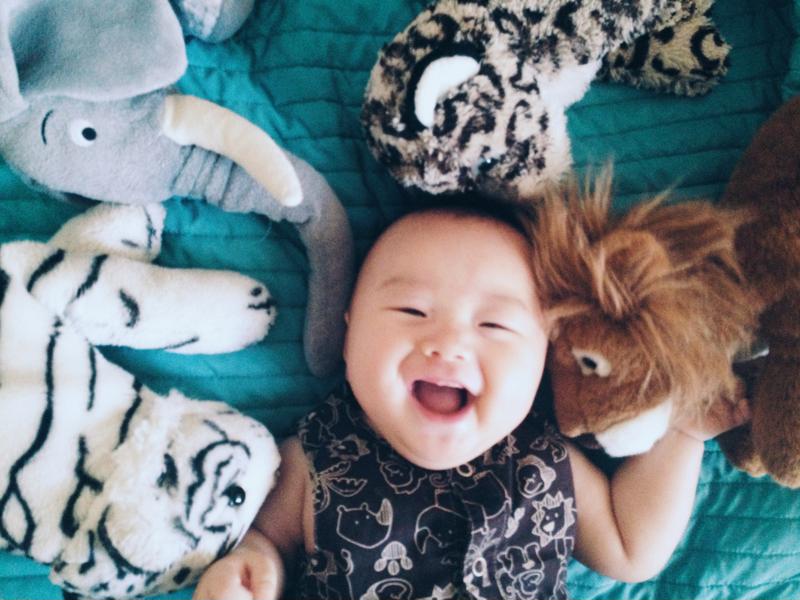For some people, it’s impossible to hold back the baby talk when they see an infant. They need to squeal and exclaim how cute the “iddle-widdle bay-bee” is. For others, the sing-song voice and intentional mispronunciations are just obnoxious.
But when communicating with a baby, it doesn’t matter what other adults’ opinions are; all that’s important is that the speaker is helping the infant’s language development – or at least not hurting it. Some say that repetition and using that high-pitched tone that many parents turn to when speaking to their small child – often called “parentese” – are actually a good thing; others argue that it teaches them bad language habits.
When baby talk is OK
For babies, listening to adults speak sounds a lot like when you hear someone talking in a foreign language. It’s hard to pick up on where words end and begin. Speaking slowly, drawing out syllables and emphasizing certain sounds helps them identify word breaks and develop context, Today’s Parent reported.
That sing-songy tone has another benefit, too: Your baby probably finds it captivating. Parents discover this method is effective in holding their baby’s attention.

Talking to your baby and responding to your baby’s coos will teach the basics of conversational back and forth. Even if your baby doesn’t understand each word, he or she will pick up on some vocabulary, learn context and begin to understand that, in conversations, people take turns talking.
Babies who hear baby talk typically babble more, which is associated with greater language development early on. Two-year-olds who babbled a lot as infants typically have a bigger vocabulary than those who babbled less often or who heard fewer words.
When baby talk is bad
As it’s true that over-pronunciation may be helpful in demonstrating where words end and begin, it’s also common for parents to muddle their pronunciation when speaking baby talk. Two studies conducted in France and Japan found that mothers tend to speak less clearly when using baby talk, blending sounds like “bo” and “po,” according to the Association for Psychological Science.
However, the researchers noted that this doesn’t indicate whether this is harmful, helpful or neutral to language development.
“Our results suggest that, at least for learning sound contrasts, the secret to infants’ language-learning genius may be in the infants themselves - the fact that they are able pick up sounds from input that is less clear than that used by adults with each other makes this accomplishment all the more remarkable,” said Andrew Martin, who was a part of the study in Japan.
Melinda Wenner Moyer, Slate’s parenting advice columnist, pointed out that small children might not like certain forms of baby talk, like repeating mispronounced words back to them. While it might be cute for a toddler to say “yo-gwet” instead of “yogurt,” the mispronunciation comes from undeveloped motor skills – not a misunderstanding of how to say the word. The child can hear the difference and knows when you say the word wrong.
In the end, what’s really important is that parents talk to their babies. If baby talk comes naturally, go ahead and coo away. If it doesn’t, don’t force it – your baby will learn words from your regular speech as well.
